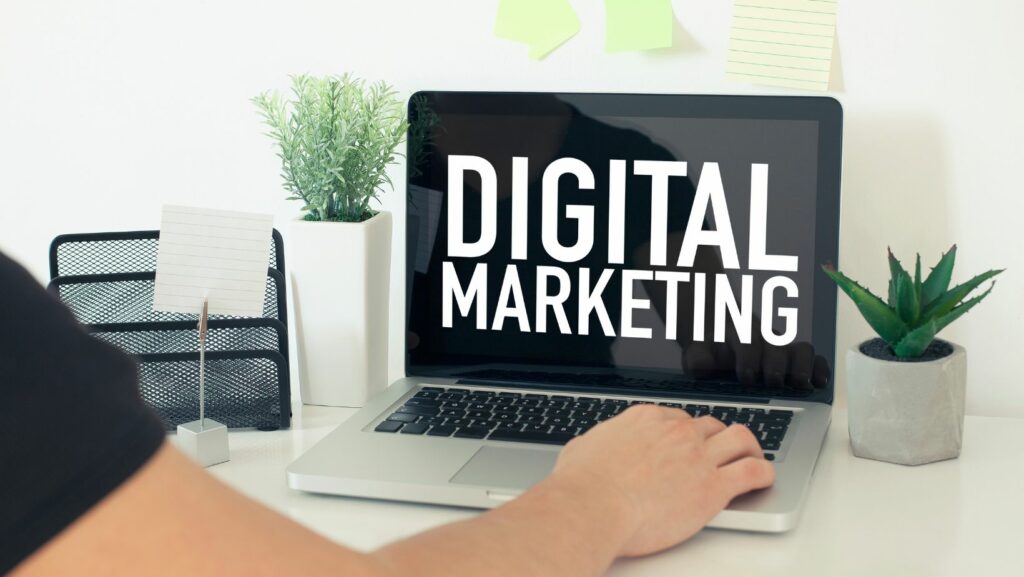In today’s fast-paced digital landscape, businesses face the challenge of standing out in a crowded market. Effective marketing solutions have become the backbone of successful enterprises, driving growth and ensuring sustainability. Companies must navigate a myriad of strategies, from traditional advertising to cutting-edge digital campaigns, to reach their target audience effectively.
With the rise of technology, businesses now have access to an array of innovative tools designed to enhance marketing efforts. These solutions not only streamline operations but also provide valuable insights into consumer behavior. By leveraging data analytics and social media platforms, companies can tailor their marketing strategies to meet the ever-evolving needs of their customers.
Business Marketing Solutions
Business marketing solutions encompass strategies that help companies reach their target audiences effectively. Diverse approaches allow brands to build stronger relationships with consumers, enhance visibility, and increase sales. To create a cohesive marketing strategy, companies should consider several key solutions.
-
 Digital Marketing: Leveraging digital channels like social media, email, and search engines to reach consumers efficiently. Analyzing data from platforms such as Google Analytics offers insights into consumer preferences, enabling personalization.
Digital Marketing: Leveraging digital channels like social media, email, and search engines to reach consumers efficiently. Analyzing data from platforms such as Google Analytics offers insights into consumer preferences, enabling personalization. -
Content Marketing: Producing relevant and engaging content to attract and retain a clearly defined audience. Blogs, videos, and infographics can position a company as an industry leader and foster consumer trust.
-
SEO: Implementing search engine optimization techniques to improve a website’s visibility on search engines. Keywords, quality backlinks, and mobile optimization are crucial for enhancing site rankings.
Key Components of Effective Marketing Strategies
Market Research
Market research gathers data on consumer needs and market trends. It involves analyzing competitors and understanding industry dynamics to identify opportunities for growth. Businesses use surveys, focus groups, and data analytics to gain valuable insights, leading to informed decision-making for their marketing efforts.
Brand Positioning
Brand positioning differentiates a brand from its competitors. It focuses on creating a unique image in the consumer’s mind, emphasizing the distinctive benefits the brand offers. Companies craft clear messaging and align all marketing channels to reinforce the brand’s promise, ensuring consistent communication across all platforms.
Digital Marketing Solutions
Digital marketing solutions rely on online platforms to reach consumers. Search engine optimization (SEO) boosts website visibility on search engines, driving organic traffic. Social media marketing engages audiences on platforms like Facebook and Instagram, enabling businesses to build community and brand loyalty. Content marketing focuses on creating valuable content such as blogs and videos to attract and retain customers. Email marketing delivers personalized messages directly to consumer inboxes, enhancing customer engagement and retention. These solutions have become essential as more consumers engage online.
 Traditional marketing solutions involve offline methods that have proven effective over time. Print advertising, including newspapers and magazines, increases brand visibility among targeted demographics. Television and radio advertising provide broad reach, allowing businesses to capture mass audiences. Direct mail campaigns deliver promotional materials directly to consumers, creating a personal marketing touch. Outdoor advertising like billboards captures local traffic attention. Traditional methods remain relevant when targeting specific local or older audiences.
Traditional marketing solutions involve offline methods that have proven effective over time. Print advertising, including newspapers and magazines, increases brand visibility among targeted demographics. Television and radio advertising provide broad reach, allowing businesses to capture mass audiences. Direct mail campaigns deliver promotional materials directly to consumers, creating a personal marketing touch. Outdoor advertising like billboards captures local traffic attention. Traditional methods remain relevant when targeting specific local or older audiences.
Hybrid approaches blend digital and traditional marketing solutions to maximize reach and impact. Integrated marketing campaigns combine online and offline strategies, providing a cohesive brand message across multiple channels. Event marketing leverages both digital invitations and in-person experiences to engage and convert audiences. These approaches allow businesses to tailor their marketing efforts to diverse consumer segments, enhancing overall effectiveness and reach by adapting to consumer preferences.
Benefits of Implementing Business Marketing Solutions
 Adopting effective business marketing solutions offers numerous advantages that propel companies toward success. By leveraging a mix of digital, traditional, and hybrid strategies, businesses can significantly enhance their market presence and connect more deeply with their target audiences. These solutions empower companies to craft personalized marketing messages that resonate with consumers, fostering stronger brand loyalty and customer engagement.
Adopting effective business marketing solutions offers numerous advantages that propel companies toward success. By leveraging a mix of digital, traditional, and hybrid strategies, businesses can significantly enhance their market presence and connect more deeply with their target audiences. These solutions empower companies to craft personalized marketing messages that resonate with consumers, fostering stronger brand loyalty and customer engagement.
Moreover, innovative tools like data analytics provide invaluable insights into consumer behavior, enabling businesses to refine their strategies and optimize their marketing efforts. This approach not only boosts visibility but also drives sustainable growth by aligning marketing initiatives with consumer needs and market trends. Ultimately, businesses that embrace a comprehensive and adaptable marketing strategy are better positioned to thrive in a competitive landscape, ensuring long-term profitability and brand recognition.

